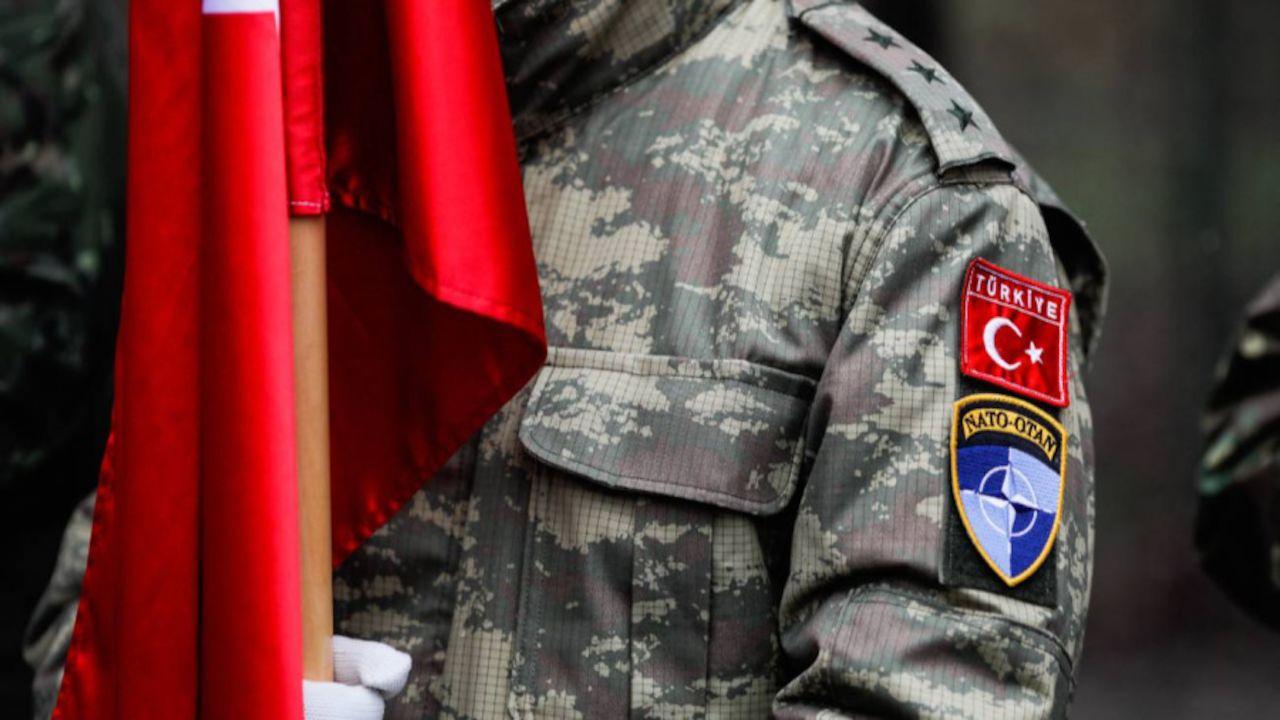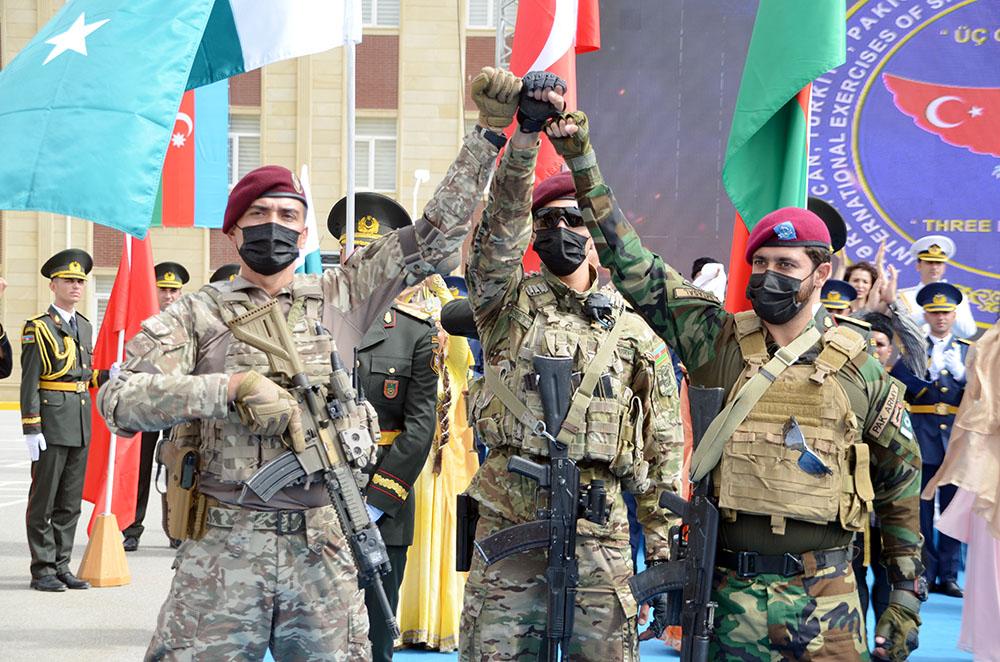Turkish army development brings more security to the region Stronger than ever
Since 2011, Türkiye's armed forces have significantly expanded its overseas warfare capabilities, marking a fundamental shift in mission setting and strategic thinking after decades focused primarily on domestic security concerns. Türkiye's global military presence in recent history and its current power capabilities are a complex paradox for Washington. On the one hand, it is beneficial for the United States and NATO to have a powerful ally capable of deterring the aggression of third forces and standing at the forefront of the fight against terrorism in countries such as Libya, Syria, Iraq, and Somalia. However, when Ankara's assertive new foreign policy puts pressure on Greece, Armenia, or the Gulf countries, the US is bound to be irritated.
Türkiye's armed forces (Türk Silahlı Küvvetleri) or TSK, have long been supplied with outdated weapons and equipment, and there has been a shortage of both officer and technical personnel resources. The Turkish military of the twentieth century functioned as an institution superior to civilian political authorities. The failed 2016 military coup and subsequent reforms increased the military's dependence on civilian control; strengthened the professionalization of a significant part of the Armed Forces and reoriented the army from internal tasks to external threats and challenges.
Until 2016, the Turkish Army conducted limited operations abroad, particularly in Cyprus and northern Iraq, and also participated in multilateral missions in the Balkans and Afghanistan. But none of this compares to the massive operations involving large numbers of personnel and equipment carried out since 2016, including participation in several theaters of military operations outside the territory of the Republic of Türkiye.
TSK's global presence now consists of five types of operational presence: NATO missions, key non-NATO partnerships, development projects, multilateral peacekeeping missions and sustained unilateral operations. Only a few armies in the world can afford such a range of operations.
Presence in NATO operational activities
TSK is involved in several ongoing NATO operations. Turkish ground forces are represented in NATO operational headquarters at the corps and mechanized brigade level on a rotational basis. Türkiye is home to NATO Land Command, hosts key elements of NATO's 2nd Mine Action Group, and hosts NATO air refueling and air defense radars inside the country. Türkiye is the fifth-largest contributor to NATO operations and the eighth-largest contributor to the organization's budget.

Key non-NATO partners
Ankara has established a full-scale military partnership with other levels of major partner countries, including Azerbaijan, Pakistan, Ukraine, Qatar and Iraqi Kurdistan (IK). The most striking example is Azerbaijan, where TSK has been painstakingly building a new type of army for 3 decades, gradually helping to move away from Soviet army standards.
In 2016, TSK opened its first permanent base in the Middle East in Qatar, where several thousand ground, air and naval forces operate under the command of a joint Qatari-Turkish force. As in the case of Azerbaijan, the relationship was not limited to the sale of equipment, but included training, personnel exchange, technical advice and institution building. The partnership with Pakistan is more focused on the defense industry, but both militaries have committed to stepping up joint training and counterterrorism efforts and have conducted exercises in Pakistan and Azerbaijan, including the exclave of Nakhchivan, over the past few years.

The partnership with Iraq's Peshmerga forces is opaque but wide-ranging. The Turkish Zelkan base in the Iraqi province of Nineveh has been used for joint training, but the sympathy of the local population for the PKK is dictated by the restraint of the Turkish side, which places more emphasis on coordination and conflict resolution than on integration.
Ukraine also represents a very special case, since Ankara provided important material assistance to Kyiv while maintaining economic ties with Moscow. Defense cooperation with Ukraine—reportedly including individual joint military exercises—began well before Russia's invasion and is likely to deepen even further in the coming years. Other countries not only acquired Turkish defense equipment but also appear to be looking to extend military relations including such countries as Bangladesh, Malaysia, and Indonesia. TSK conducts several annual multilateral exercises to deepen engagement with various partners. These include the Anatolian Eagle air exercise (Türkiye, Pakistan, UAE, Qatar, Azerbaijan, UK and NATO participated in 2023) and the EFES combined arms exercise (more than ten thousand people from thirty-seven allied countries in 2022).
Development partners and multilateral missions
Training missions in conflict-torn developing countries, especially in Africa, have become a new part of TSK's growing range of operations. The headquarters of the Turkish Task Force in Somalia (Turkish acronym STGK) has been overseeing training at Camp Turksom in Somalia and the Turkish base since 2011. The TSK Libya Mission Group (Turkish acronym LGG) has trained various Libyan forces whose main base is in Somalia. Tripoli, Misrata and Wattiya sought to create basic security institutions for Libya.Also TSK and Ethiopian forces are conducting joint training, adding to Ankara's report giving the green light to the sale of drones to this Eastern African country. Niger and Togo established military cooperation programs after purchasing Turkish drones, and several other countries (Tunisia, Morocco, and Angola) have formally agreed to do so.
The Turkish military and security forces, together with the Syrian armed opposition group, are implementing major development projects, concentrating and rebuilding the disparate elements of the Syrian armed forces. TSK is also working to improve the defense capability of the Georgian army through training, consultation, personnel exchanges, and free transfers of Turkish-made military equipment. Türkiye's 20-year effort to help train and advise Afghan security forces ended with a Taliban victory in 2021 and this experience has helped refine TSK's approach and resources for developing partnerships.
One-way expansion
Türkiye's direct unilateral military operation represents the fifth and final element of TSK's global presence. These include combat operations in northern Iraq and northern Syria, as well as troop deployments in Northern Cyprus and the Eastern Mediterranean.
TSK's activities in northern Iraq and northern Syria are aimed at interfering with the armed activities of the PKK and its affiliates near the Turkish border and protecting groups friendly to Ankara. TSK has established some 20 bases and outposts in northern Iraq, and an estimated 5,000 to 10,000 troops are supported by Türkiye-based aircraft and artillery. He carried out a series of operations in northern Syria to create the desired "safety zone" for approximately 5 million Syrian citizens. Thousands of Turkish troops are cooperating with the Free Syrian Army and planning to expand the territory. (Manbij and Tel Rifat).
TSK also maintains tens of thousands of military personnel in Northern Cyprus, including the army, navy, and air force. According to the Mavi Vatan (Blue Homeland) doctrine, the Turkish Navy's patrols and exercises in the Mediterranean, Aegean, and Black Seas increase tensions with regional rivals and represent a further expansion of TSK's regional presence.
Relations with Washington
The significant increase in Türkiye's global military presence over the past 10 years has been coupled with the development of defense industry capabilities and the aforementioned robust set of external bases, partnerships, and operations. Ankara, post-7/15, has achieved the ability to project independent forces even though the TSK is projected to be less specialized and less capable. This affects the security balance of several neighboring regions, including the Greater Middle East, the Caucasus, Southern and Eastern Europe, Central Asia, and Africa. At a time when Washington is shirking its primary responsibility for the security of these regions, a competent and engaged Türkiye is in Western interests as long as it is connected to a functioning Alliance relationship with NATO and other US partners.








